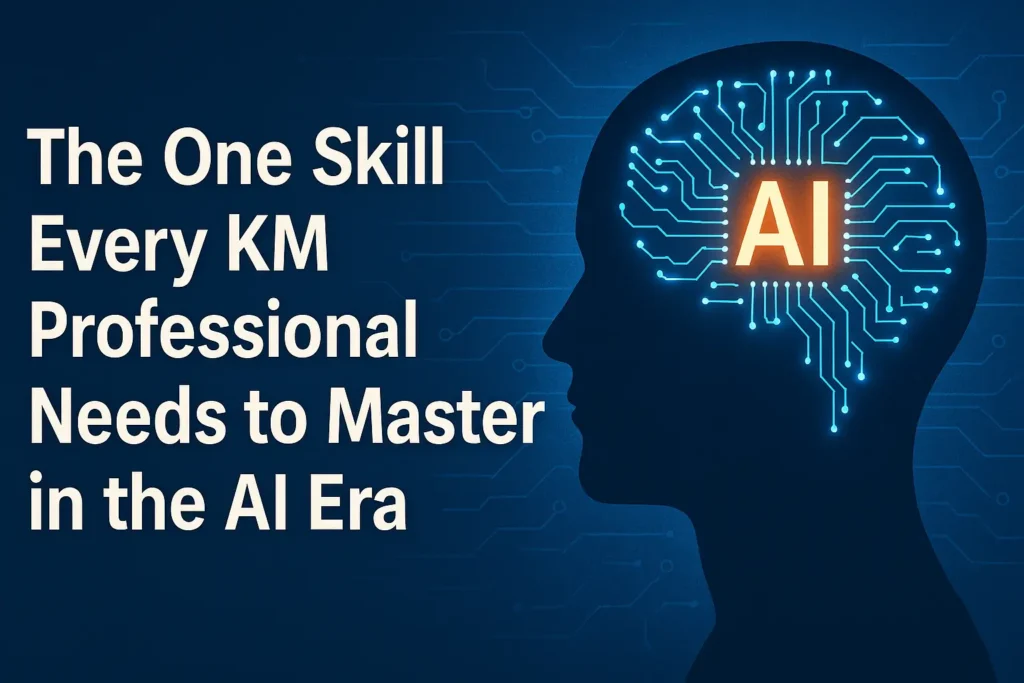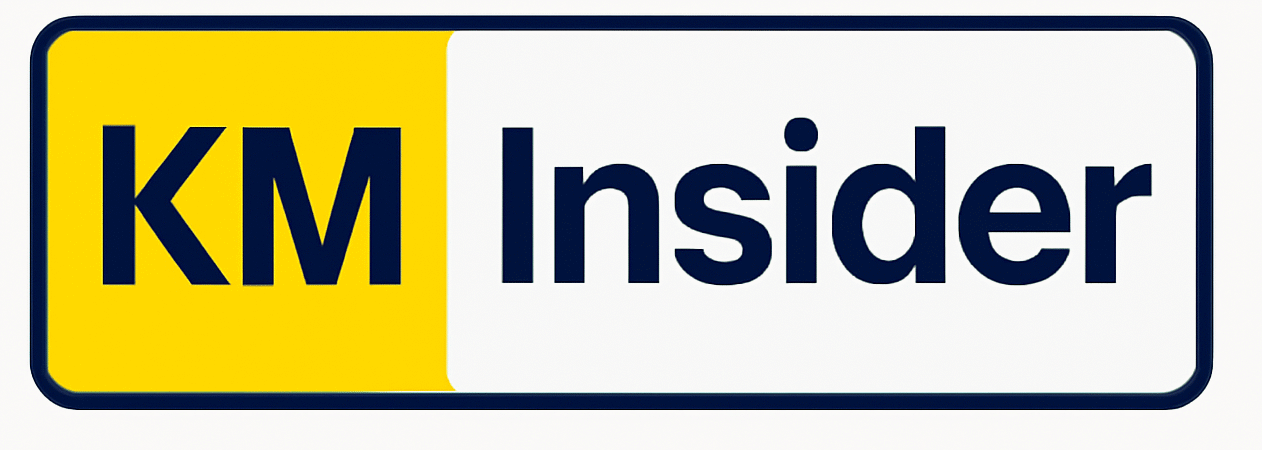The rise of AI isn’t just a technological shift; it’s a fundamental change in how we create, manage, and use knowledge. As knowledge management (KM) professionals, we are at the center of this transformation. While some may see AI as a threat to our roles, I see it as an opportunity—a chance to elevate our work and demonstrate a value that machines can’t replicate.
In this new landscape, the most critical skill for a KM professional isn’t about becoming an AI programmer or a data scientist. Those are important, yes, but they are not the core of our profession. The one indispensable skill we must master is Contextual Human Judgment.
Let me explain.

AI and knowledge management
AI, in its various forms, is becoming remarkably good at handling data. It can sift through millions of documents in seconds, identify patterns, summarize information, and even generate new content. These are tasks that once consumed a huge amount of our time. But what AI cannot do, at least not yet, is understand the human element behind the data.
This is where Contextual Human Judgment comes in. It’s our unique ability to take the output of an AI system and apply a layer of human understanding to it. It’s the difference between a list of facts and a meaningful insight. It’s the art of connecting the dots that AI presents, not just with other data points, but with the unwritten rules, political dynamics, and cultural nuances of an organization.
Consider these scenarios:
- Scenario 1: The AI-Generated Report. An AI tool analyzes all internal project documents and generates a report on “Top 5 Risks for Q4.” A KM professional with strong contextual judgment would not just forward this report. They would ask: What is the history behind these projects? Who are the key stakeholders, and what are their concerns? What are the unstated priorities of leadership that might influence how we act on these risks? They would then translate the cold, hard data into a clear, actionable narrative that resonates with the people who need to take action.
- Scenario 2: The Automated Knowledge Base. An AI-powered system automatically tags and organizes thousands of company documents. It’s efficient and fast. A KM professional, however, knows that a perfect taxonomy on its own doesn’t equal knowledge sharing. They would use their judgment to identify knowledge gaps the AI can’t see. Perhaps the most valuable knowledge isn’t in a document at all—it’s in the heads of a few senior engineers who are about to retire. The KM professional’s role is to act as a bridge, using their social intelligence to facilitate conversations, capture that tacit knowledge, and integrate it into the system in a way that makes it truly accessible and useful.
- Scenario 3: The AI-Powered Copilot. A team is using an AI copilot to answer employee questions. The AI provides fast, accurate answers based on the knowledge base. But a KM professional recognizes that some questions are not just about finding a solution; they are signals of a bigger problem. A flood of questions about a new software policy, for example, might not just require a good answer—it might indicate a need for a new training program, a change in the policy itself, or better communication from leadership. The KM professional uses their judgment to see beyond the individual query and understand the underlying organizational need.
How to Cultivate this Skill
This skill isn’t about technical training; it’s about a shift in mindset and a deepening of our most human capabilities.
- Become a Master Translator: Your job is to translate AI outputs into human-centric language. You must be able to explain complex, data-driven insights in simple terms and connect them to real-world business objectives.
- Focus on the “Why”: AI tells us “what” is happening. Our job is to dig into the “why.” Why is this pattern emerging? Why is this knowledge important now? Why should people care about this information?
- Embrace Empathy: Understand the needs, fears, and motivations of your colleagues. Knowledge hoarding, resistance to change, or a lack of engagement are not technical problems; they are human ones. Your ability to lead with empathy and build trust is what will make a KM program successful in the age of AI.
- Connect the People, Not Just the Data: Your value is in your ability to foster communities of practice and connect people who have the knowledge with people who need it. AI can’t build a sense of community or facilitate a meaningful conversation over coffee—you can.
In the AI era, the KM professional is no longer just a content manager or a librarian. We are curators of organizational wisdom, strategic advisors, and culture builders. Our role is to ensure that while AI handles the data, the human intelligence, empathy, and context that make an organization truly successful are not lost. Mastering this one skill—Contextual Human Judgment—is not just about surviving; it’s about leading the way.
Read: AI and KM: Are Robots Coming for Your Knowledge? (And Why That’s Good)
Subscribe to receive notifications for free webinars on Knowledge Management.
